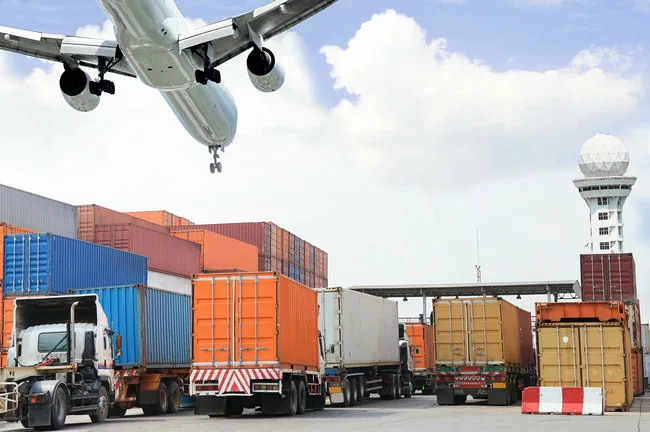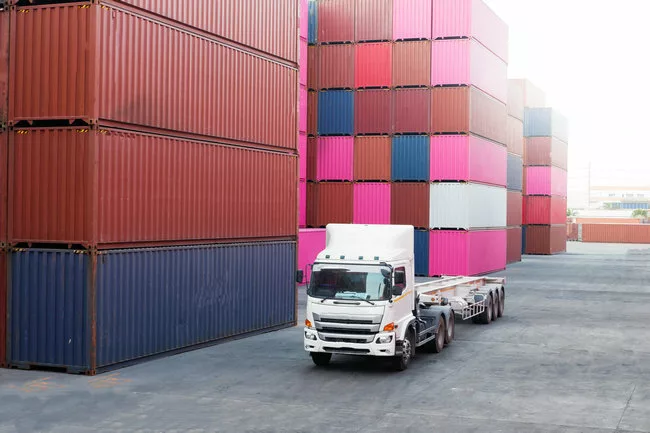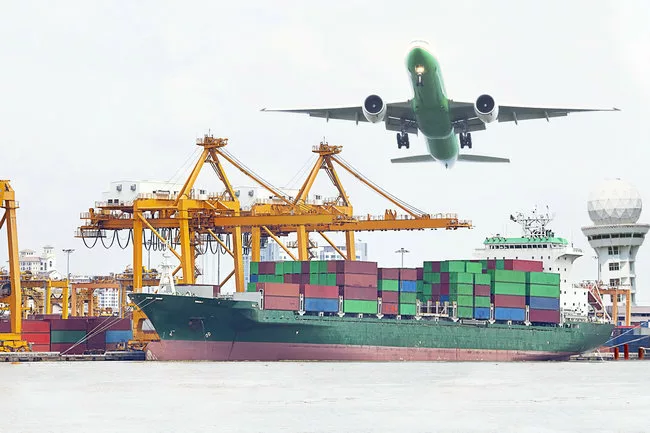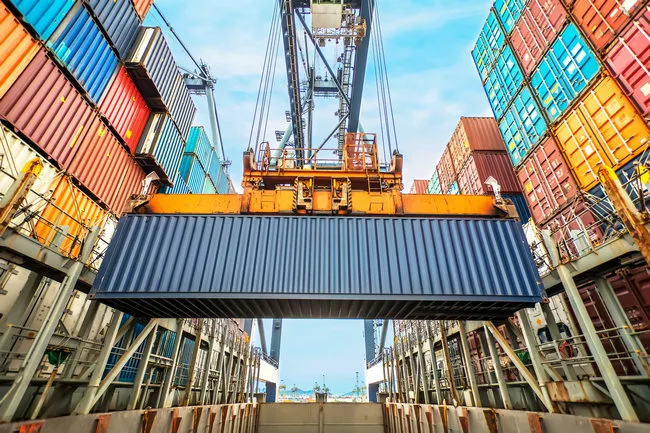When it comes to international trade, choosing the correct shipping terms is essential for ensuring a smooth and successful transaction. Two of the most common shipping agreements used in global trade are Free on Board (FOB) and Cost, Insurance, and Freight (CIF).
Both terms, part of the Incoterms established by the International Chamber of Commerce, dictate the responsibilities and costs for buyers and sellers during different stages of the shipment process.

FOB indicates that the seller is responsible for delivering the goods to the named port of shipment, where the risk of loss or damage transfers to the buyer. From then on, the buyer assumes responsibility for the goods, including loading, transportation, and insurance costs.
Conversely, the seller must pay for the insurance and main carriage costs to the designated destination port under CIF. At this point, the risk transfers to the buyer, who assumes responsibility for additional costs, such as customs duties and onward transportation.
Comparing FOB and CIF can help businesses determine which shipping agreement best suits their needs, considering costs, responsibilities, and risks.
Ultimately, the choice between these shipping terms will depend on several factors, such as the type and volume of goods, logistics, and the parties’ preferences for risk allocation.
Key Takeaways
- FOB and CIF are common Incoterms that define cost and risk responsibilities for buyers and sellers in international trade.
- FOB transfers responsibility for goods to the buyer at the port of shipment, while CIF transfers risk at the destination port after covering insurance and freight costs.
- Choosing between FOB and CIF depends on factors such as goods’ type and volume, logistics, and parties’ risk allocation preferences.
Understanding FOB and CIF
When dealing with international shipping agreements, you’ll come across two of the most common terms: FOB (Free On Board) and CIF (Cost, Insurance, and Freight). It’s essential to understand the differences between these terms, as they have significant implications for the responsibility and liability of buyers and sellers in the export and import processes.

FOB: Free On Board
In FOB contracts, the seller is responsible for delivering the goods to a predetermined port or vessel. The risk of damage or loss of goods is transferred from the seller to the buyer once the goods are on the ship. At this point, the buyer assumes all responsibility, including transportation and insurance costs. This agreement offers the following advantages and disadvantages:
- Advantages: FOB allows you control over the shipping process, enabling you to negotiate better freight rates and choose your preferred freight forwarder. It also puts you in control of transit times and routing.
- Disadvantages: It requires more active involvement from you (the buyer) in managing the shipping process, and you’ll need to bear the cost and risk associated with transportation and insurance.
CIF: Cost, Insurance, and Freight
Under CIF contracts, the seller assumes responsibility for all three elements: cost, insurance, and freight. The seller must arrange and pay for transportation and insurance up to the agreed-upon destination port.
Once the goods reach the destination port, the risk and responsibility transfer from the seller to the buyer. Here are the advantages and disadvantages of using CIF:
- Advantages: As a buyer, you don’t have to worry about arranging transportation and insurance, as the seller takes care of these aspects. This option can be more convenient, especially for inexperienced importers.
- Disadvantages: You may have less control over the shipping process and might pay higher freight and insurance costs. Additionally, you might need help with the visibility and tracking of the shipment.
In summary, the choice between FOB and CIF depends on your priorities, level of expertise, and the level of control you desire in the shipping process. Understanding these terms will enable you to make informed decisions when entering international trade agreements.
Buyer and Seller Responsibilities
When it comes to international trade, understanding the responsibilities of both the buyer and the seller is crucial.

In this section, we’ll discuss the differences in buyer and seller responsibilities under FOB (Free On Board) and CIF (Cost, Insurance, and Freight) contractual terms.
In a FOB contract:
- The seller is responsible for delivering the goods to the specified port and loading them onto the ship. Once they pass the ship’s rail, the risk and control are transferred to you, the buyer.
- As a buyer, you are responsible for transportation costs, insurance, and any risks associated with losses or damages that may occur during transit from the loading port to the destination port.
On the other hand, in a CIF contract:
- The seller assumes responsibility for delivering the goods to the shipping company and arranging and paying for the shipping, insurance, and freight charges.
- The risk gets transferred from the seller to you, the buyer, upon delivery at the destination port. As a buyer, your responsibilities include customs duties, taxes, unloading, and onward transportation.
Both importer (buyer) and exporter (seller) must maintain clear and open communication throughout the process to ensure a successful transaction.
Each party should know their duties to avoid confusion and misunderstandings that may lead to financial loss or shipment delays.
FOB and CIF contracts differ significantly regarding buyer and seller responsibilities. FOB assigns more risks and costs to the buyer, while CIF provides more comprehensive coverage by the seller until the goods reach the destination port.
Ensure that you weigh the advantages and disadvantages of each contract type before choosing the most suitable one for your international trade transactions.
Cost Implications
When it comes to international trade, understanding the cost implications of different shipping agreements is crucial for both buyers and sellers. Free on Board (FOB) and Cost, Insurance, and Freight (CIF) are two widely used Incoterms, each with distinct cost implications.
In FOB agreements, the seller is responsible for delivering goods to the specified port and covering shipping costs until the goods are loaded onto the ship.

From that moment onwards, the buyer assumes responsibility for all subsequent costs, including freight charges, insurance, and any other costs associated with transporting goods to their final destination.
This gives the buyer more control over the shipping and can often lead to more cost-effective rates, especially if they have negotiated contracts with freight carriers.
On the other hand, under CIF agreements, the seller is responsible for paying the freight charges and insurance on the goods and remains responsible for them until they reach the buyer’s nearest port.
This means that the seller has to bear the shipping and other costs and ensure that the items are adequately insured. As a buyer, this can provide you with added peace of mind, as the seller will handle the coordination and payment of shipping and insurance.
However, this shipping arrangement can also lead to higher costs, as the seller may build their profit margin into the rates they charge you for these services.
So, when choosing between FOB and CIF, it’s essential to weigh the potential cost savings of taking direct control over shipping and insurance (FOB) against the convenience and reduced risk provided by having the seller manage these aspects (CIF).
In any case, clearly understanding your responsibilities and the cost implications associated with each type of agreement will help you make informed decisions and protect your interests in international trade transactions.
Comparing FOB and CIF
Understanding the differences between FOB (Free On Board) and CIF (Cost, Insurance, and Freight) can be crucial for your business when dealing with international shipping. Both FOB and CIF are Incoterms, standardized terms used in international trade to define the responsibilities and obligations of buyers and sellers.
In this section, we will compare FOB and CIF to help you make informed decisions when shipping your goods.

FOB is an Incoterm that implies the seller is responsible for delivering the goods to a specified port or place, where the risk and ownership are transferred to the buyer. In a FOB contract, once the goods are loaded onto the transport vehicle (usually a ship) at the agreed-upon port, the seller’s responsibility ends, and the risk is transferred to the buyer.
In this case, you, as the buyer, would be responsible for additional costs, such as transportation, insurance, and import duties, from the loading point to the destination.
On the other hand, CIF requires the seller to not only deliver the goods to the port of destination but also cover the costs of insurance and freight. A CIF contract transfers the risk to the buyer only when the goods arrive at the destination port.
However, the ownership of the goods is transferred as soon as the goods are loaded onto the transport vehicle.
One of the critical differences between FOB and CIF is the point at which the risk and ownership of the goods are transferred from the seller to the buyer. This happens at the origin port for FOB, while for CIF, it occurs at the destination port.
Another main difference is who pays for transportation, insurance, and other associated costs. The buyer bears these costs in FOB contracts, whereas, in CIF contracts, the seller covers them.
- FOB: Seller’s responsibility ends at the origin port; risk and ownership are transferred to the buyer once the goods are loaded onto the transport vehicle; buyer covers transportation, insurance, and other costs.
- CIF: Seller is responsible for delivering the goods to the destination port and covering insurance and freight costs; risk is transferred to the buyer at the destination port, while ownership is transferred at the origin port.
Choosing between FOB and CIF depends on your preferences and the specifics of your international trade transactions. If you prefer more control over transportation and insurance arrangements, FOB may be a better choice.
If you’d rather have the seller handle these arrangements, opt for a CIF contract. Consider the most suitable Incoterm for your situation, and consult with experienced professionals to help you make the best decision.
Frequently Asked Questions
1. What are the main differences between FOB and CIF?
The primary difference between FOB (Free on Board) and CIF (Cost, Insurance, and Freight) is the point at which responsibility and ownership of goods transfer from the seller to the buyer. In FOB, this transfer occurs once the goods have been loaded onto the ship at the point of origin. In CIF, responsibility shifts to the buyer after the shipment reaches its destination.
2. How do the responsibilities of the buyer and seller differ in FOB and CIF?
In FOB, the seller is responsible for loading the goods onto the ship and ensuring they reach the agreed point of origin. Once loaded onto the shipping vessel, the buyer takes responsibility for the goods, including transportation and insurance costs. In CIF, however, the seller handles the costs of loading the goods, marine insurance, and transportation to the destination. The buyer becomes responsible for receiving the goods and managing customs costs after they reach the final destination.
3. When should a buyer choose FOB over CIF?
Buyers should choose FOB shipping over CIF when they want more control over the shipping costs, operation, and insurance of the goods, as well as directly managing customs at their destination. Additionally, FOB might be preferred if the buyer can negotiate better freight rates or insurance coverage. With experience in international shipping, the seller pays lower fees after negotiating shipping agreements.
4. How do risks and costs vary between FOB and CIF?
Under FOB terms, the seller is responsible for any risks and costs until the goods are loaded on the ship at the fob origin. After this, the buyer assumes responsibility for the goods, insurance, and freight costs.
In CIF contracts, the seller bears the risks of further shipping costs until the goods reach the destination, including insurance and freight charges. The buyer has shipping liability obligations for any additional costs once the goods arrive, including customs duties and potential risks during unloading or handling at the destination port.
Checkout Our FOB Services Today

We provide a seamless shipping experience, ensuring your goods are delivered quickly and without issues.
Please send us a message today via the customer contact form. We will guide you through the entire process.
